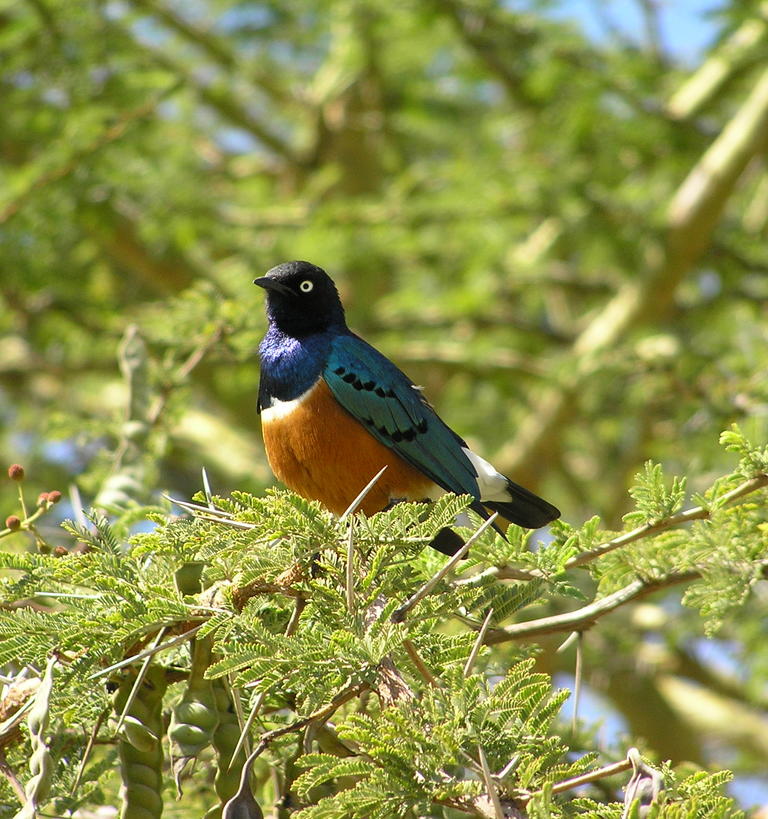Superb Starling Project

Superb Starling Project
Institutions:
National Science Foundation (USA)
Principal Investigators:
Dustin Rubenstein, dr2497@columbia.edu
Project Manager:
Wilson Nderitu Watetu
We seek to understand how the environment—both social and ecological—influences behavior through empirical studies that combine ecology and evolution with those of underlying molecular, physiological, and neural mechanisms. Our primary study system in Kenya is the superb starling, though we have also worked on weavers and other birds. We have a color-banded population of superb starlings at Mpala that has been studied since 2001, but we also work with populations living in other environments across Kenya. Although our primary focus is on the causes and consequences of sociality in starlings, we also study the evolutionary responses and behavioral, physiological, and molecular adaptations that these birds use to cope with environmental change. To achieve this, we examine how the ecological and social environment influences the genotype, phenotype, and ultimately fitness. We take an evolutionary perspective in considering how environmental fluctuation has shaped genetic and phenotypic variation within populations, but we also think about the environmentally-responsive portions of the genome (epigenetic variation) and phenome (hormonal and behavioral variation) to study how plasticity evolves.
Publications:
Earl AD, GG Carter, AG Berlinger, E Korir, SS Shah, WN Watetu, and DR Rubenstein. 2025. A cryptic role for reciprocal helping in a cooperatively breeding bird. Nature 642:381-388.
Shah SS and DR Rubenstein. 2023. Group augmentation underlies the evolution of complex sociality in the face of environmental instability. Proceedings of the National Academy of Sciences USA 120:e2212211120.
Shah SS and DR Rubenstein. 2022. Prenatal environmental conditions underlie alternative reproductive tactics that drive the formation of a mixed-kin cooperative society. Science Advances 8:eabk2220.
